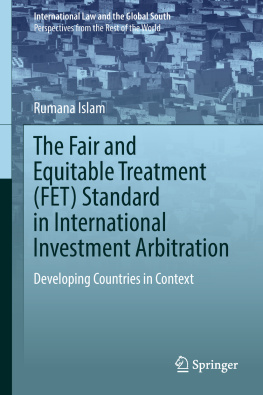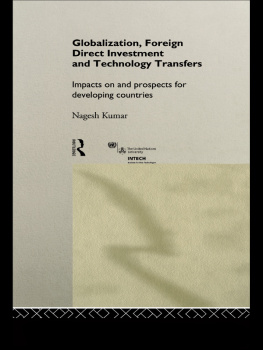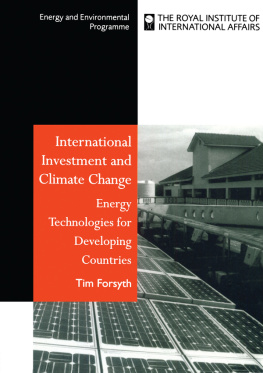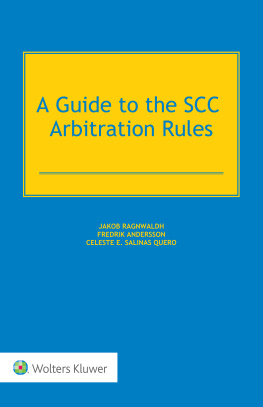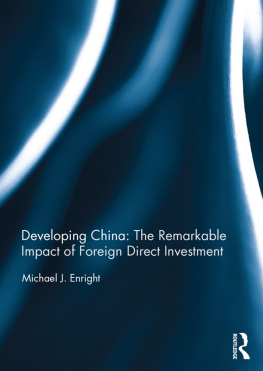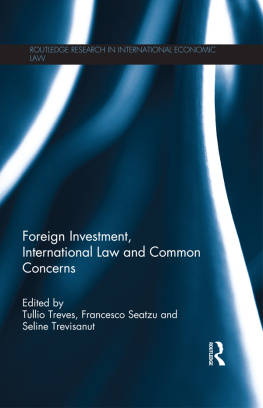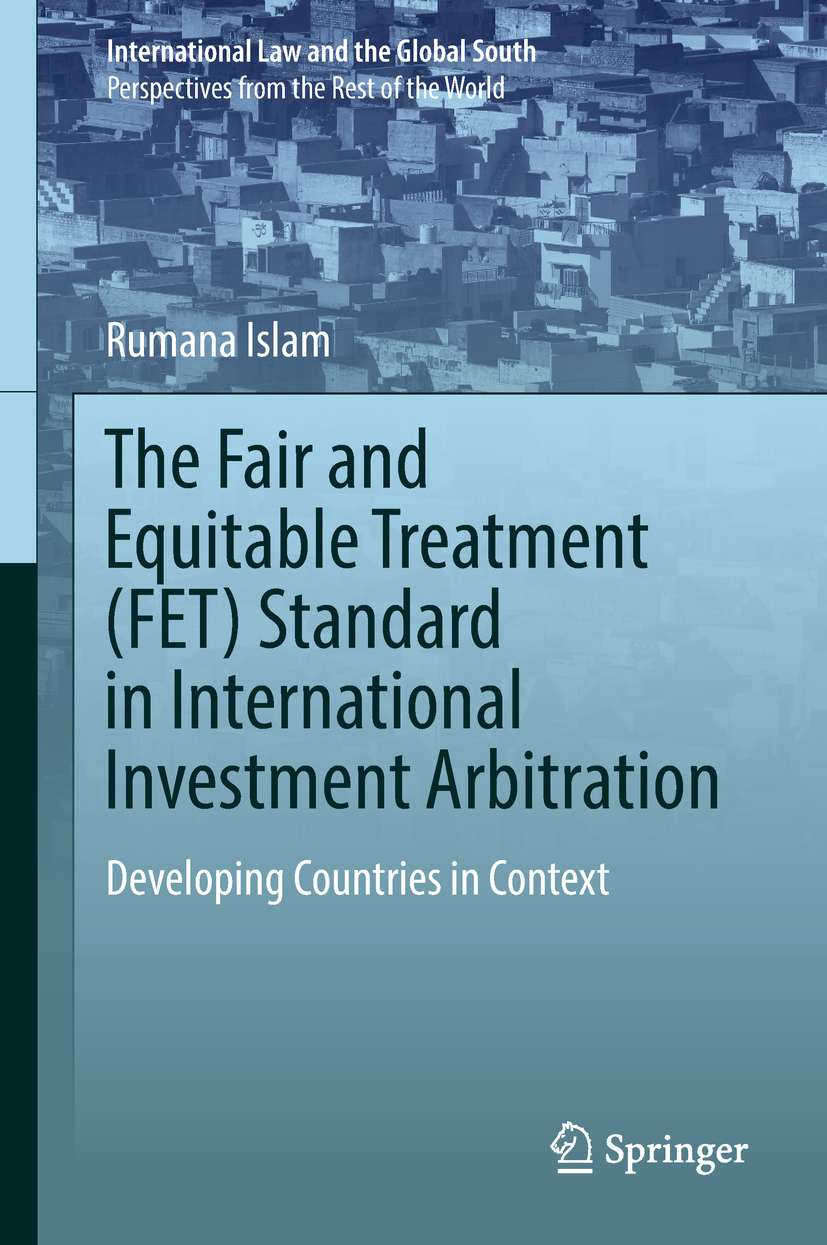International Law and the Global South Perspectives from the Rest of the World
Series Editor
Lela Choukroune
Professor of International Law and University Research, and Innovation Professor in Democratic Citizenship, Portsmouth University, Portsmouth, UK
Former Director, Centre for Social Sciences and Humanities, New Delhi, India
International Editorial Board
Prof. Dr. Balveer Arora , Former rector and Pro-vice Chancellor, Jawaharlal Nehru University, New Delhi, India
Hon. Justice Prof. Eros Roberto Grau , Former Minister, Brazilian Supreme Court; and Emeritus Professor, Faculty of Law, University of Sao Paulo, Brazil
Associate Prof. Dr. Denise Prvost , Maastricht University Law Faculty, The Netherlands
Prof. Dr. Carlos Miguel Herrera , Director of the Centre for Legal and Political Philosophy, University of Cergy-Pontoise, France
Hon. Justice Robert Ribeiro , Permanent Judge, Hong Kong Court of Final Appeal, Hong Kong, SAR China
This book series aims to promote a complex vision of contemporary legal developments from the perspective of emerging or developing countries and/or authors integrating these elements into their approach. While focusing on todays law and international economic law in particular, it brings together contributions from, or influenced by, other social sciences disciplines. Written in both technical and non-technical language and addressing topics of contemporary importance to a general audience, the series will be of interest to legal researchers as well as non-lawyers.
In referring to the rest of the world, the book series puts forward new and alternative visions of todays law not only from emerging and developing countries, but also from authors who deliberately integrate this perspective into their thinking. The series approach is not only comparative, post-colonial or critical, but also truly universal in the sense that it places a plurality of well-informed visions at its center.
The Series
Provides a truly global coverage of the world in reflecting cutting-edge developments and thinking in law and international law
Focuses on the transformations of international and comparative law with an emphasis on international economic law (investment, trade and development)
Welcomes contributions on comparative and/or domestic legal evolutions
More information about this series at http://www.springer.com/series/13447
Rumana Islam
The Fair and Equitable Treatment (FET) Standard in International Investment Arbitration Developing Countries in Context
Rumana Islam
Department of Law, University of Dhaka, Dhaka, Bangladesh
ISSN 2510-1420 e-ISSN 2510-1439
International Law and the Global South
ISBN 978-981-13-2124-5 e-ISBN 978-981-13-2125-2
https://doi.org/10.1007/978-981-13-2125-2
Library of Congress Control Number: 2018951397
Springer Nature Singapore Pte Ltd. 2018
This work is subject to copyright. All rights are reserved by the Publisher, whether the whole or part of the material is concerned, specifically the rights of translation, reprinting, reuse of illustrations, recitation, broadcasting, reproduction on microfilms or in any other physical way, and transmission or information storage and retrieval, electronic adaptation, computer software, or by similar or dissimilar methodology now known or hereafter developed.
The use of general descriptive names, registered names, trademarks, service marks, etc. in this publication does not imply, even in the absence of a specific statement, that such names are exempt from the relevant protective laws and regulations and therefore free for general use.
The publisher, the authors and the editors are safe to assume that the advice and information in this book are believed to be true and accurate at the date of publication. Neither the publisher nor the authors or the editors give a warranty, express or implied, with respect to the material contained herein or for any errors or omissions that may have been made. The publisher remains neutral with regard to jurisdictional claims in published maps and institutional affiliations.
This Springer imprint is published by the registered company Springer Nature Singapore Pte Ltd.
The registered company address is: 152 Beach Road, #21-01/04 Gateway East, Singapore 189721, Singapore
To the beloved memory of my father, the sole inspiration for writing this book.
Foreword
There have been many books written in recent times on the fair and equitable treatment (FET) standard in investment treaties. It has become the basis on which several recent awards have been made against developing countries. As a result of the extensive interpretation given to this once-dormant phrase by arbitrators from the dawn of this millennium, every claimant has made the standard the focus of his claims. Consequently arbitrators intent on broadening the scope of investment protection through this broadly phrased clause, claimants have seldom lost arbitrations they had initiated. The existing literature constitutes largely of analysis that is devoid of the social and other consequences of such expansive interpretation. These analytical studies are intent on dissecting the subtleties involved in the possible interpretations so far advanced in the awards than in the raging debates as the legitimacy of the system that has been evoked particularly by the centrality of the fair and equitable treatment plays in modern investment arbitration.
Dr. Rumana Islam adopts a refreshing approach to the subject looking at the law in the context of the intense debates it has provoked in recent times. She brings into focus the fact that the FET standard as the focal point of the law has created inequities and imbalances against developing countries, after debunking the myth that the law is held with even hands between the rich and the poor. She explores issues as to the overall justice demands involved in the evocation of a standard which in itself is paradoxically committed to justice but does not deliver it to the state by denying any arguments by the state as to the deleterious and other conduct of the investor.
The context of her later discussions are set in a socio-economic account of the development of the FET standard. It is important to understand the asymmetries of power in which the treaties were constructed as well as in the arbitration mechanisms which provide it with compliance factors. To ignore the confrontation of power with the inability of poorer states to resist impositions of standards favorable to investment is to turn a blind eye to the reality that befuddles the law and has led to the present legitimacy crisis. The approach in this book draws away the curtain that has hidden the factors that brought about the treaties and the interpretation of the treaties. Imbalance in knowledge was also a factor as the developing countries did not understand the possible uses to which such an innocent phrase could be put to in later times by astute arbitrators seeking to liberalise further the global system of investment protection.

